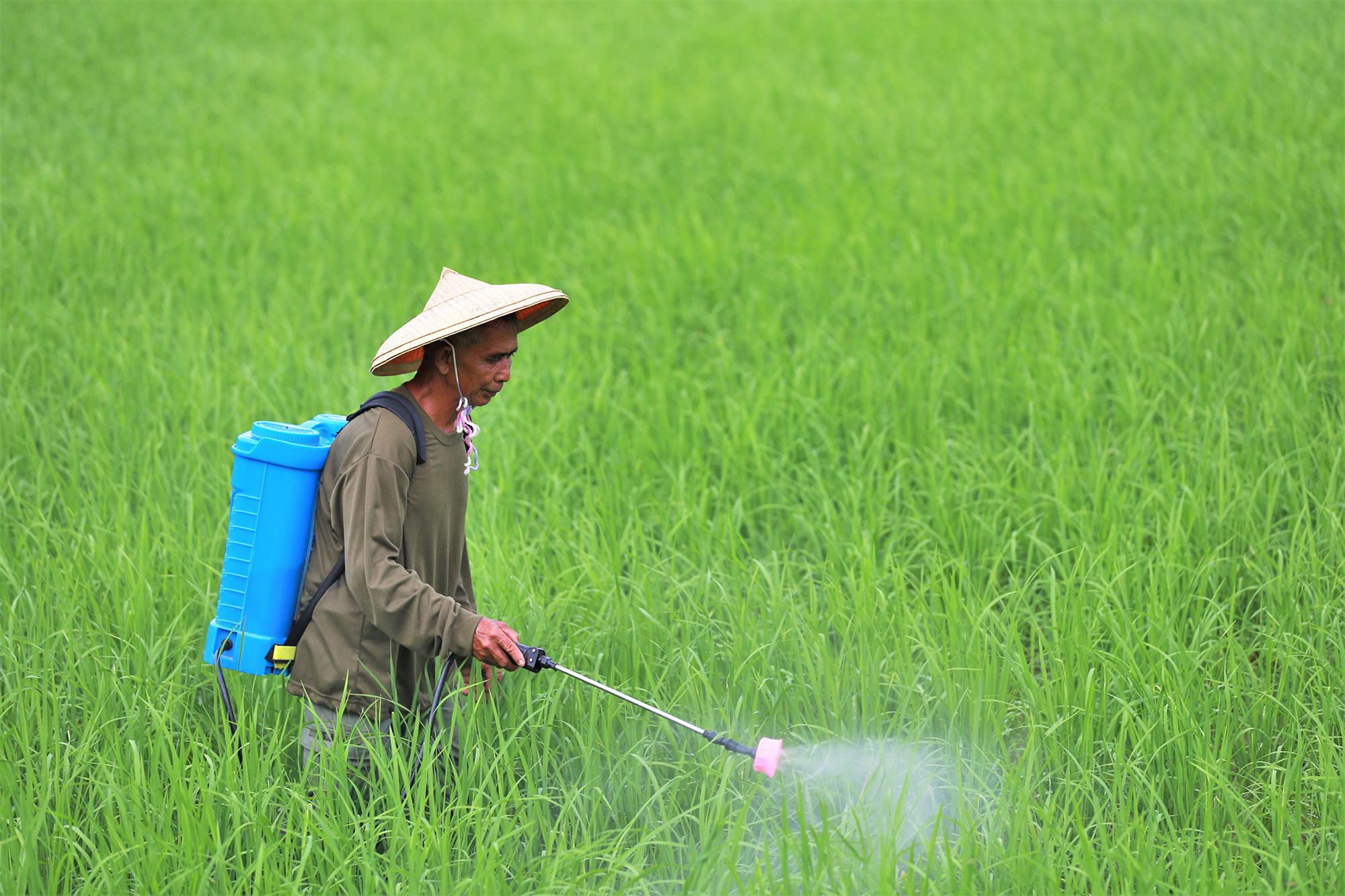Pesticide Action Network (PAN) underscores the urgent need for a global phase-out of Highly Hazardous Pesticides (HHPs) by 2030, as it today released the updated PAN International List of Highly Hazardous Pesticides and the PAN International Consolidated List of Banned Pesticides.
These new documents show an alarming number of hazardous pesticides still in use, as well as the highly uneven nature of regulation of hazardous pesticides around the globe. But they also show that many countries have renounced HHPs and that a global phase-out of HHPs and their replacement with safer non-chemical alternatives and agroecology is possible.
PAN’s Bans List shows that 162 countries have banned a total of 460 pesticide active ingredients or groups of actives regarded as still ‘currently in use’ in the global market, i.e. not obsolete. In total, there were 94 active ingredients that were newly added to the list of banned pesticides. This includes the world’s most popular weedkiller, glyphosate, which is banned by three countries (Luxembourg, Mexico (stepwise until 2024) and Vietnam). The list also shows that for the first time, imidacloprid, clothianidin and thiamethoxam – neonicotinoids linked to bee deaths – have all lost approval in the European Union (EU).
The countries with the most known bans are the EU and the United Kingdom (175 banned + 208 specifically ‘not approved’ HHPs), followed by Switzerland (140), Brazil (131), Egypt (76), Saudi Arabia (73), Indonesia (61), Cambodia (60), India (55), Mauritania (52), Palestine (52), and China (51).
Meanwhile, there are 338 Highly Hazardous Pesticides listed in PAN’s updated list of HHPs. Thirty-four (34) new pesticides had been added while eight pesticides had been deleted from the list due to criteria updates. Most of the new pesticides on the list are due to the addition of Japan’s Globally Harmonized System on Classification and Labelling of Chemicals (GHS) as reference to the already included EU’s GHS, in order to better reflect the international nature of this list. The GHS is used for identifying several long-term health effects.
“It is long acknowledged by international institutions like UNEP, FAO and SAICM that global action is needed to tackle the health and environmental problems caused by HHPs. Yet, our lists show that many more HHPs remain without bans in any country yet. We need political will to implement a clear phase-out strategy with the goal to ban HHPs in agriculture by 2030,” says Susan Haffmans of PAN Germany.
“Both lists provide a basis for political action. The HHP-list helps to identify HHPs and facilitate priority setting when replacing pesticides with non-chemical alternatives. And the long list of banned pesticides shows, clearly, that countries have found banning pesticides that are hazardous to human health and/or the environment does not impede agricultural production.” says Meriel Watts of PAN Aotearoa New Zealand.
“Highly Hazardous Pesticides contribute to the unacceptable situation that an estimated 385 million children, women and men suffer from unintended acute pesticide poisoning each year” says Sarojeni Rengam, Executive Director of PAN Asia Pacific, citing a landmark study published in December 2020. “Decision makers can no longer close their eyes on this shameful situation. What rural communities need now is action to phase-out these most harmful substances that causes so much harm and sorrow worldwide.”
“Brain damage, IQ-loss, cancer, autism – children are especially at risk from HHPs. Society can no longer stand by while our children suffer the consequences of these chemicals. We urgently need global action to end the use of the worst pesticides to protect the health of the most vulnerable,” says Kristin Schafer, Executive Director of PAN North America, which has campaigned against the brain-harming pesticide chlorpyrifos, which is banned in 35 countries but is still approved for use in the US.
While PAN welcomes the loss of approval for imidacloprid, clothianidin and thiamethoxam in the EU, it says that neonicotinoid pesticides that are linked to an unprecedented global “insect collapse” are not being banned fast enough. “Highly Hazardous Pesticides have a devastating effect on natural resources and on biodiversity, including on beneficial insects like bees and other pollinators. Replacing HHPs with agroecology is key when we want to overcome this growing ecological and biological crisis” says Javier Souza, Regional Coordinator of PAN Latin America (RAPAL).
The PAN lists also reflect the reality of double standards in pesticide trade, as there are more pesticide bans in highly developed countries, yet transnational corporations are allowed to manufacture and export banned pesticides to poorer countries. “Rich countries contribute to the suffering of people in the Global South by exporting pesticides that have long been banned in their own countries for environmental and health. These double standards exacerbate environmental injustice and constitute discriminatory practices that violate international human rights” says Maimouna Diene director of PAN Africa.
“The agricultural community has the knowledge and the means to overcome outdated chemical-intensive growing practices. What farmers and farm workers need is the support from society, from governments and international organisations which are free from the influence of pesticide-corporations and which put people’s well-being above commercial interests” says Keith Tyrell, director of PAN UK.
In this context, PAN has joined over 350 civil society organisations in opposing a formal partnership between the UN Food and Agriculture Organization and the pesticide industry association CropLife International, saying that such a partnership will likely undercut the FAO’s support for agroecological alternatives to HHPs, and jeopardize global efforts to push for a complete ban of Highly Hazardous Pesticides by 2030.
Further Information:
(1) The PAN International List of Highly Hazardous Pesticides is available at: http://pan-international.org/wp-content/uploads/PAN_HHP_List.pdf
(2) The PAN International Consolidated List of Banned Pesticide is available at: http://pan-international.org/pan-international-consolidated-list-of-banned-pesticides/
Available for interview:
Dr. Meriel Watts, PAN Asia Pacific +64-21-1807830; meriel@merielwatts.net
Susan Haffmans, PAN Germany susan.haffmans@pan-germany.org, +49(0)40-3991910-25
Sarojeni Rengam, PAN Asia Pacific, sarojeni.rengam@panap.net
Javier Souza Casadinho, PAN Latin America, javierrapal@yahoo.com.ar ,+11 15 3617 1782
Kristin Schafer, PAN North America kristins@panna.org
Keith Tyrell, PAN UK, keith@pan-uk.org
Maimouna Diene, PAN Africa maimounadiene@pan-afrique.org








Discussion about this post